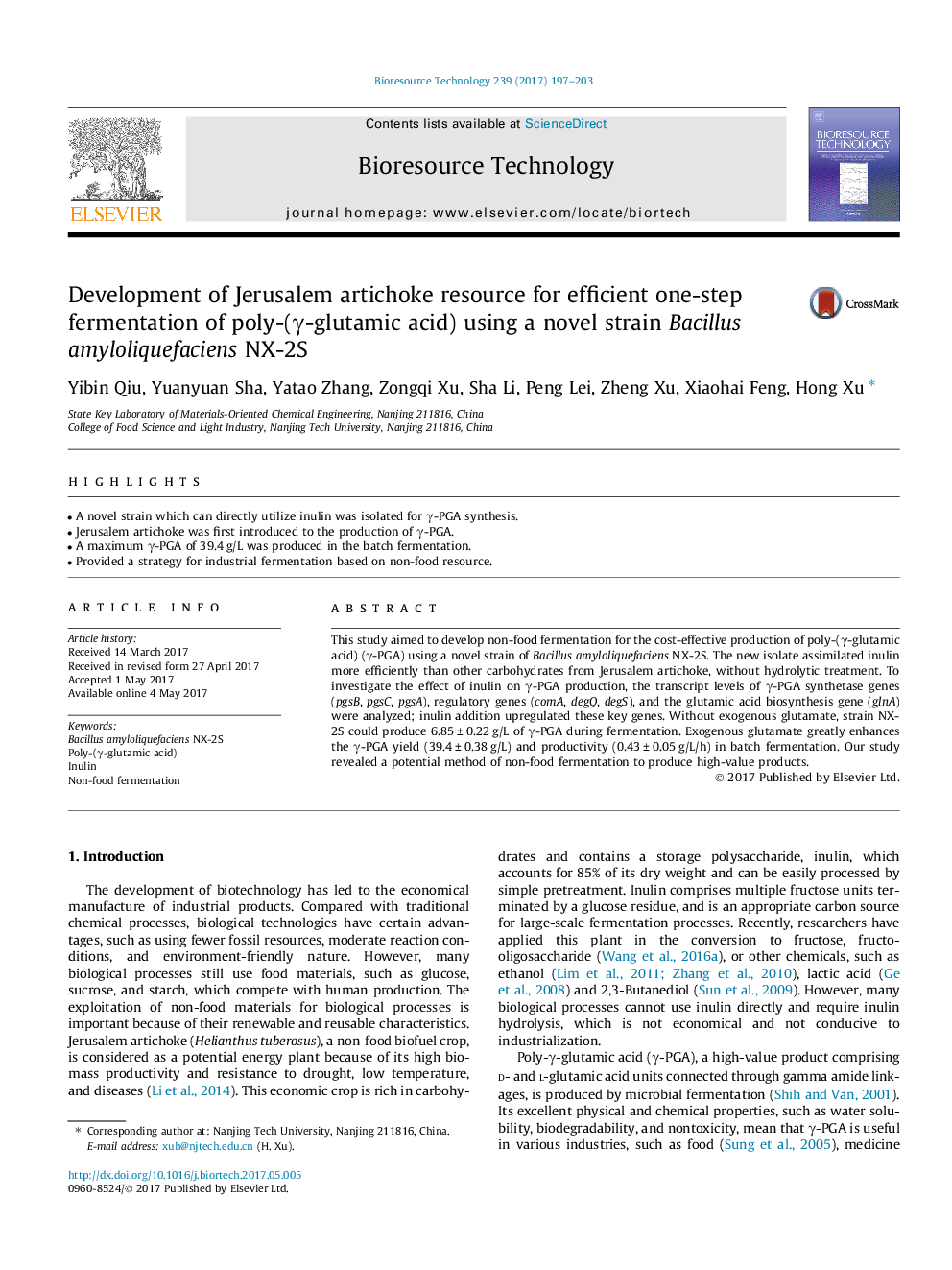| Article ID | Journal | Published Year | Pages | File Type |
|---|---|---|---|---|
| 4997177 | Bioresource Technology | 2017 | 7 Pages |
â¢A novel strain which can directly utilize inulin was isolated for γ-PGA synthesis.â¢Jerusalem artichoke was first introduced to the production of γ-PGA.â¢A maximum γ-PGA of 39.4 g/L was produced in the batch fermentation.â¢Provided a strategy for industrial fermentation based on non-food resource.
This study aimed to develop non-food fermentation for the cost-effective production of poly-(γ-glutamic acid) (γ-PGA) using a novel strain of Bacillus amyloliquefaciens NX-2S. The new isolate assimilated inulin more efficiently than other carbohydrates from Jerusalem artichoke, without hydrolytic treatment. To investigate the effect of inulin on γ-PGA production, the transcript levels of γ-PGA synthetase genes (pgsB, pgsC, pgsA), regulatory genes (comA, degQ, degS), and the glutamic acid biosynthesis gene (glnA) were analyzed; inulin addition upregulated these key genes. Without exogenous glutamate, strain NX-2S could produce 6.85 ± 0.22 g/L of γ-PGA during fermentation. Exogenous glutamate greatly enhances the γ-PGA yield (39.4 ± 0.38 g/L) and productivity (0.43 ± 0.05 g/L/h) in batch fermentation. Our study revealed a potential method of non-food fermentation to produce high-value products.
